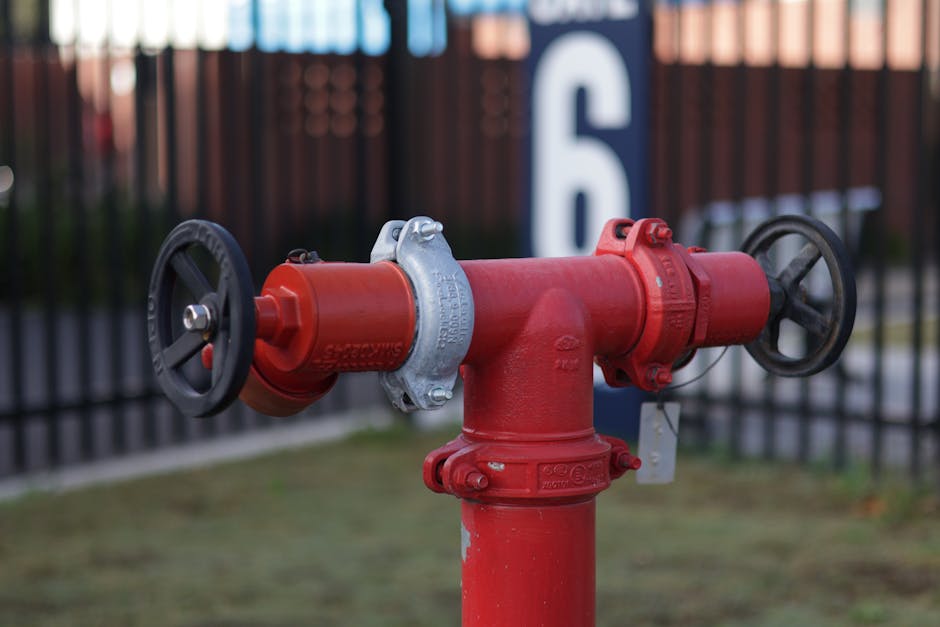

In today’s fast-paced world, ensuring the safety and performance of your trailer is paramount. Advanced trailer tire pressure monitoring systems (TPMS) provide critical insights that help prevent tire failures and enhance overall road safety. These systems utilize sophisticated sensors to monitor tire pressure in real-time, delivering immediate notifications to the driver when tire pressure falls below optimal levels.
Understanding how these systems work can significantly impact your towing experience. Here are a few key features of advanced TPMS:
- Real-Time Monitoring: Continuous tracking allows for immediate awareness of any tire pressure issues, aiding in swift corrective actions.
- Temperature Monitoring: In addition to pressure, these systems often track tire temperature, which is crucial for avoiding blowouts caused by overheating.
- Data Analytics: Many advanced systems come equipped with analytics tools that help users understand tire performance over time, leading to better maintenance strategies.
- Mobile Alerts: With mobile connectivity, alerts can be sent directly to your smartphone, ensuring you’re always informed while on the road.
By integrating an advanced TPMS into your trailer setup, you’re not just safeguarding your investment; you’re also enhancing your overall towing safety and efficiency. Tow with peace of mind, knowing that trailerwatchdog is standing guard. Visit trailerwatchdog.com to learn more about how our monitoring systems can transform your trailer into a smart trailer.
Benefits of Enhanced Tire Pressure Monitoring for Trailers

Enhanced tire pressure monitoring systems (TPMS) for trailers offer a multitude of benefits that significantly improve safety, efficiency, and performance on the road. Understanding these benefits is essential for any trailer owner looking to optimize their vehicle's operation.
Here are some key advantages of utilizing an advanced TPMS:
- Increased Safety: Proper tire pressure is crucial for safe towing. An enhanced TPMS alerts drivers to low pressure or tire issues, reducing the risk of blowouts and accidents.
- Improved Fuel Efficiency: Maintaining optimal tire pressure can lead to better fuel economy. Under-inflated tires create more rolling resistance, leading to increased fuel consumption. With a TPMS, you can ensure your tires are always inflated properly.
- Prolonged Tire Life: Regular monitoring helps in identifying pressure discrepancies early, which can prevent uneven tire wear. This not only extends the life of your tires but also saves you money on replacements.
- Enhanced Load Stability: Correct tire pressure improves the stability of your trailer when loaded, ensuring that it handles better on the road. This is especially important for heavy loads that can shift during transport.
- Peace of Mind: Knowing that your tire pressures are constantly monitored gives you confidence during your travels. You can focus on the journey ahead instead of worrying about potential tire issues.
Incorporating an advanced tire pressure monitoring system into your trailer not only boosts its performance but also enhances the overall towing experience.
Key Features to Look for in Tire Pressure Monitoring Systems

When selecting a tire pressure monitoring system (TPMS) for your trailer, it's essential to identify key features that ensure optimal performance and reliability. A well-equipped TPMS can make a significant difference in your towing experience, providing real-time insights into tire conditions.
Here are some important features to consider when evaluating different tire pressure monitoring systems:
Protect your trailer
- Real-Time Monitoring: Look for a system that provides continuous, real-time monitoring of tire pressure and temperature. This feature allows you to receive immediate alerts for any irregularities, keeping you informed at all times.
- Wireless Connectivity: Opt for a TPMS that utilizes wireless technology for easy installation and convenience. Wireless systems eliminate the need for complex wiring, making it simpler to set up and use.
- Mobile App Integration: Many advanced TPMS options offer mobile app integration, enabling you to monitor tire conditions directly from your smartphone. This feature allows for easy access to tire data and alerts on-the-go.
- Wide Pressure Range: Choose a system that accommodates a wide range of tire pressure levels. This is particularly important for trailers that may carry varying loads and require different tire pressures.
- Visual and Audible Alerts: Ensure the TPMS provides both visual and audible alerts for low tire pressure or high temperature. These alerts are crucial for prompt action and can help prevent catastrophic failures.
- Battery Life: A TPMS with long battery life is essential for consistent operation without frequent maintenance. Look for systems that utilize energy-efficient technology to extend battery life.
Considering these key features will help you select a tire pressure monitoring system that enhances your trailer's safety and performance, ensuring a more secure towing experience.
Best Practices for Maintaining Trailer Tire Pressure

Maintaining proper tire pressure is crucial for the safety and performance of your trailer. Adhering to best practices not only enhances tire longevity but also improves fuel efficiency and ensures a smoother ride. Here are some effective strategies to keep your trailer tires in optimal condition:
- Regular Inspections: Schedule periodic checks of your trailer tires to monitor pressure levels. Use a reliable tire pressure gauge to ensure accuracy, and check pressures when tires are cold for the best reading.
- Follow Manufacturer Recommendations: Always adhere to the tire pressure specifications outlined by the tire manufacturer. This information can usually be found on the tire sidewall or in the trailer owner's manual.
- Adjust for Load Changes: Be mindful of how changes in load affect tire pressure. If you frequently alter the weight being towed, adjust the tire pressure accordingly to maintain safety and performance.
- Monitor Temperature Effects: Tire pressure can fluctuate with temperature changes. Check the tire pressure more frequently during extreme weather conditions, as both heat and cold can influence pressure levels.
- Invest in a TPMS: Utilizing a tire pressure monitoring system (TPMS) can provide real-time data and alerts for tire pressure and temperature changes. This proactive approach helps prevent issues before they escalate.
- Rotate Tires Regularly: To promote even wear, rotate your trailer tires as recommended. This practice helps maintain consistent pressure levels across all tires and extends their lifespan.
By following these best practices, you can ensure that your trailer tires remain in excellent condition, enhancing safety and performance on the road.
Integrating Tire Monitoring with Smart Trailer Technologies

The integration of tire monitoring with smart trailer technologies represents a significant advancement in enhancing trailer safety and performance. By leveraging cutting-edge technology, trailer owners can access real-time data that not only improves awareness but also aids in proactive decision-making. Here are key aspects of integrating tire monitoring with smart trailer technologies:
- Real-Time Monitoring: Advanced tire pressure monitoring systems (TPMS) provide continuous data on tire pressure and temperature. This information can be accessed via mobile apps or onboard displays, allowing for immediate adjustments if necessary.
- Data Analytics: Integrating tire monitoring with smart systems enables the collection of valuable data over time. Analyzing this data can help in identifying patterns, predicting maintenance needs, and optimizing tire performance based on specific usage conditions.
- Alerts and Notifications: Smart trailer technologies can send alerts directly to the driver’s smartphone or vehicle dashboard if any tire is under-inflated or overheating. This feature allows for immediate attention, reducing the risk of tire failure during transit.
- Vehicle-to-Trailer Communication: Implementing vehicle-to-trailer communication systems can enhance the synergy between the towing vehicle and the trailer. This integration ensures that both systems work in harmony, improving overall safety and performance.
- Enhanced Maintenance Scheduling: With integrated tire data, owners can schedule maintenance more effectively. Knowing when tires are due for rotation or replacement helps in planning service times, minimizing downtime.
- Improved Fuel Efficiency: Properly monitored and maintained tire pressure leads to better fuel efficiency. Smart technologies can help monitor this aspect, leading to cost savings over time.
Embracing the integration of tire monitoring with smart trailer technologies not only enhances the operational efficiency of trailers but also significantly contributes to safer road travel.
Future Trends in Trailer Tire Pressure Monitoring Solutions
The future of trailer tire pressure monitoring solutions looks promising, fueled by continuous advancements in technology and an increasing focus on safety and efficiency in the transportation industry. As trailer manufacturers and fleet operators prioritize these innovations, several trends are emerging:
- IoT Integration: The Internet of Things (IoT) will play a crucial role in the evolution of tire monitoring solutions. By connecting trailers to the cloud, operators can access real-time data remotely, allowing for better management and predictive analysis.
- AI and Machine Learning: Artificial intelligence and machine learning technologies are set to enhance tire monitoring systems by analyzing historical data to predict failures before they occur. This proactive approach can prevent catastrophic events and reduce maintenance costs.
- Wireless Technology: Future tire pressure monitoring systems will likely shift towards more advanced wireless technologies, reducing the need for cumbersome wiring and making installation simpler. This will also allow for seamless integration with other smart trailer systems.
- Blockchain for Data Security: As data privacy becomes increasingly important, blockchain technology may be implemented to secure tire data transmission and storage. This would ensure that sensitive information is protected from unauthorized access.
- Enhanced User Interfaces: The development of more intuitive user interfaces will make it easier for operators to access and interpret tire data. Advanced dashboards and mobile applications will facilitate better decision-making on the go.
- Sustainability Focus: As the transportation industry shifts towards more sustainable practices, tire monitoring systems will likely incorporate features that promote eco-friendly driving habits, such as alerts for optimal tire maintenance to improve fuel efficiency.
With these trends shaping the future of trailer tire pressure monitoring, the potential for enhanced safety and operational efficiency is immense. Tow with peace of mind, knowing that trailerwatchdog is standing guard.




